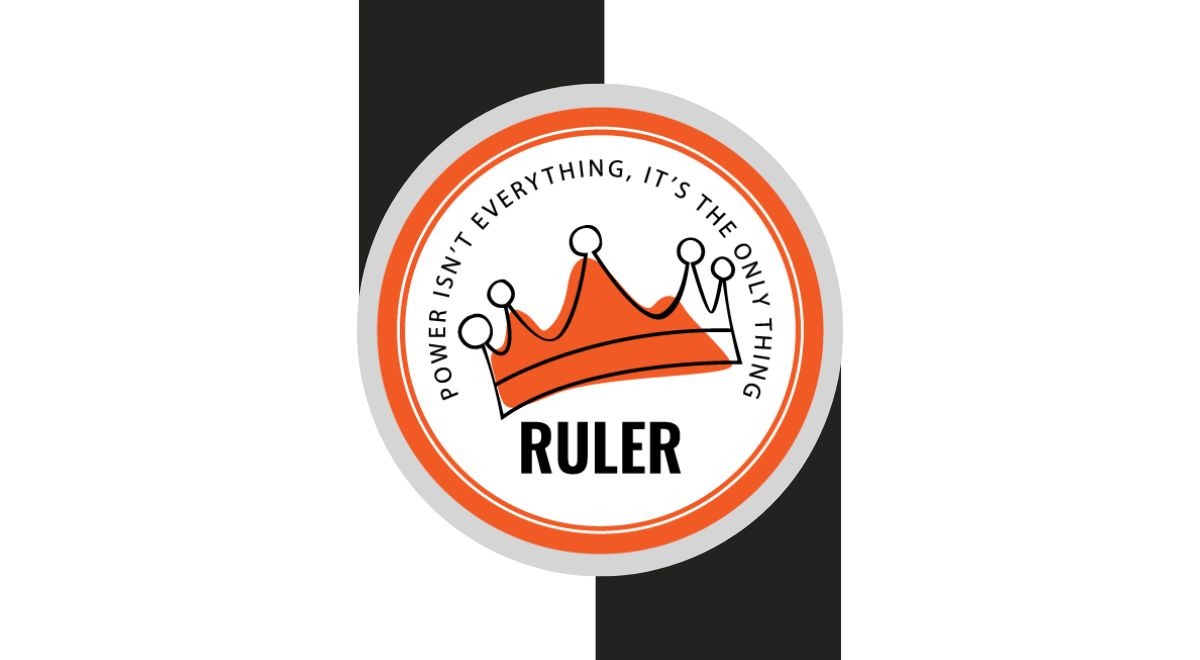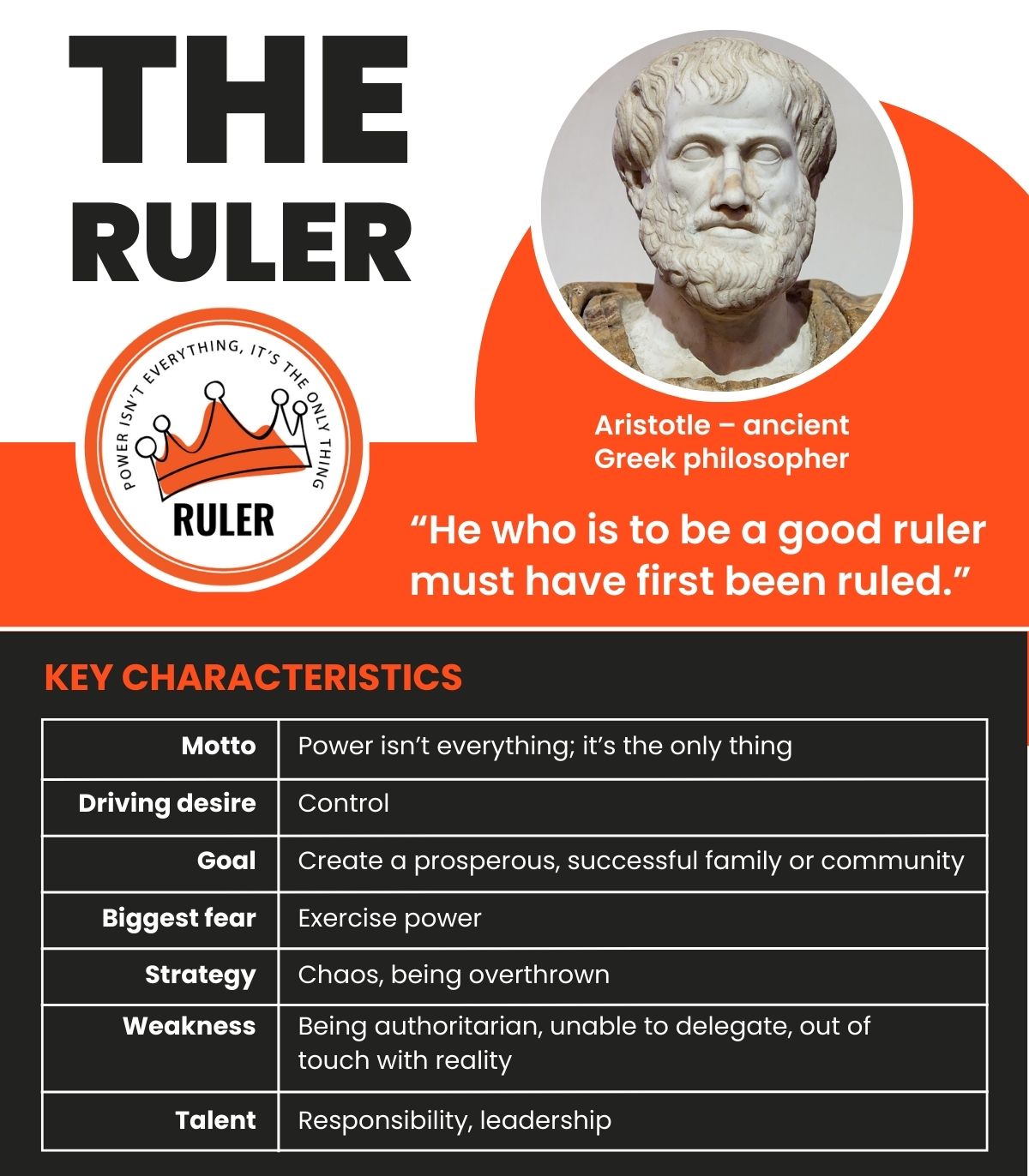Table of Contents
“He who is to be a good ruler must have first been ruled.” – Aristotle – ancient Greek philosopher [1] [2]
Introduction
The Ruler exudes confidence. It is their entire makeup. They are so sure of their products quality and ability to perform as expected that they cannot help but boast about it. And most of the time, they back it up.
Also known as boss, leader, aristocrat, king, queen, politician, role model, manager, or administrator
Key Characteristics
- Motto:Power isn’t everything; it’s the only thing
- Driving desire:Control
- Goal:Create a prosperous, successful family or community
- Strategy:Exercise power
- Greatest fear:Chaos, being overthrown
- Weakness:Being authoritarian, unable to delegate, out of touch with reality
- Talent:Responsibility, leadership
Description of the Ruler
The Ruler is a role model. They set the rules and follow them to the letter, and expect the same of others. At their best, Ruler archetypes see the need in those around them and seek to be a leader for them. Rulers exude a sense of order in all that they do. Brands with this archetype attract people who need the feeling of order and empowerment. Ruler brands always seek to appear noble and upstanding, some of the best traits of a good ruler.
The Ruler has three levels, each successive level embodying more and more what it means to be a ruler. The first level allows the company and its customers to begin taking control of their own life. Responsibility for the self becomes essential and appreciated. The second level involves leadership. The Ruler brand will become a leader in their area of expertise in some small way; their skills and products slowly become some of the best. They also encourage their customers to do the same, often marketing that their products will help them achieve similar results. The third level is simple and achieved by few. The brand becomes the leader of its entire community. They are the best, unquestionably so.
An excellent example of a Ruler brand is Mercedes Benz. In nearly all their advertisements, their motto is “The best or nothing,” showing their commitment to being the pinnacle of automobile performance and luxury. Their lofty claims are supported by the consistent production of safe, high-quality, dependable cars, some of which are a status symbol to own.
Another example is the Luxury hotel chain Four Seasons. The whole goal is when you stay to feel like royalty and a cut above anywhere else you can stay.
- Brand Motivations
- Leadership
- Vision
- Power
- Prosperity
- Status
- Success
- Wealth
- Respect
- Direction
- Brand Challenges
- Weakness
- Lost
- Insignificance
- Failure
- Poverty
- Destitution
- Disrespect
- Brand Strategy
- Luxury and quality
- Clear direction and vision
- Lead by example
- Overt superiority
The Ruler in the Wild
The following companies, organizations, and industries are good examples of the Ruler.
- Archetype Examples: Ritz-Carleton, Four Seasons, IBM, Microsoft, Rolex, Mercedes Benz, Louis Vuitton, Crown Royal, Macallan
- Industries: Luxury Automobiles, Luxury Apparel, Resorts, Watch Companies, Security, Finance, High-End Alcohol, Luxury Hotels
Conclusion
The Ruler seeks to control and have power. They do not want to rule for unjust reasons, but rather they wish to provide good leadership and direction for those they lead. The Ruler aims to be the best at everything they do, for they have promised to do so, and a good ruler never reneges on their promises.
[1] “Aristotle”, (2019 August 22), Retrieved from: https://www.history.com/topics/ancient-history/aristotle
[2] “Aristotle Biography”, (2014 April 2), Retrieved from: https://www.biography.com/scholar/aristotle


